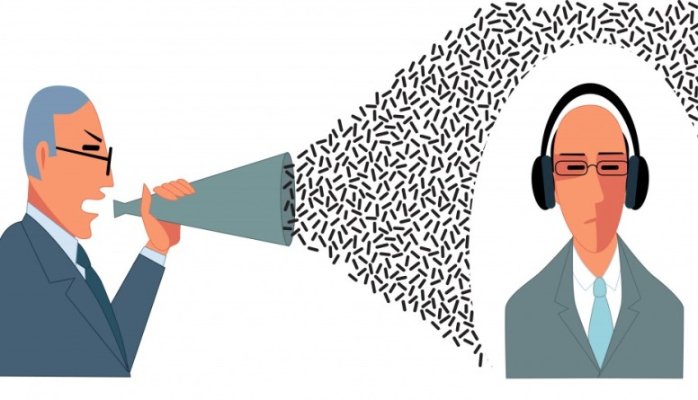Discovering a thrilling book, movie, or TV show can be an exciting journey, full of unexpected twists and surprises. But what happens when someone lets slip a spoiler, unraveling the very essence of the story you were eager to explore? It can be frustrating, to say the least.
However, the good news is that there are effective strategies to help you forget those unwanted revelations and reclaim the joy of experiencing a story without preconceived notions.
To forget a spoiler, distract yourself with other thoughts and activities, and practice not revisiting the spoiler. Over time, it will fade from your memory.
In this guide, you’ll show simple ways to forget them. These methods, both practical and psychological, will help you enjoy stories with that exciting sense of wonder once more.
What Is A Spoiler?

A spoiler is a piece of information or a detail that reveals a crucial plot point, twist, or outcome of a book, movie, TV show, or other form of entertainment. Sharing them can ruin the experience for someone who hasn’t yet seen, read, or experienced the content, as it removes the element of surprise and suspense.
Lastly, they are generally regarded as a breach of etiquette, and many people prefer to avoid them to fully enjoy a story as it unfolds.
Strategies to Forget Spoilers
Acknowledge the Challenge: Recognize that blocking thoughts, especially spoilers, is a difficult process. This understanding can help prevent the rebound effect, where the thought returns even stronger. So, be prepared for a challenging journey and remain patient without getting frustrated when the thought keeps resurfacing.
Embrace Blankness: When the thought infiltrates your mind, let it pass without attaching significance to it. Instead, divert your focus towards a blank mental canvas, envisioning a pristine white wall or an empty sheet of paper. While this technique may come naturally to some, maintaining patience and resilience is crucial.
Substitute with Alternatives: Defy unfavorable ideas by quickly substituting them with positive ones. If the idea of a leak suddenly crosses your head, try focusing on the storyline of a different TV show that you’ve already seen. Instead fill your mind with contradictory, irrelevant information to break the grasp.
Persist in Daily Practice: It takes time for one to forget. Every day, engage in thought suppression exercises to increase your chances of removing the invasive information.
Also, according to studies, this process can take a month or so to see noticeable benefits. Applying these mental blocks consistently over time will help you become more adept at suppressing these kinds of recollections.
Extend to Associated Sensory Details: Extend this procedure to incorporate sensory aspects associated with the spoiler’s recollections. This could be the look on the face of the person who revealed the spoiler, a certain song that’s playing in the background, or the place where you heard it. The mental foundation that supports the spoiler’s memory is weakened when you suppress these connected memories, which facilitates the spoiler’s own decline.
Use Cognitive Distractions: Employ cognitive distractions to disrupt the formation of long-term memories. Engage in mental exercises such as puzzles, riddles, or mathematical challenges. For example:
You have three stoves: one with water, one with oil, and one with a candle. You only have one match, and you need to boil water, fry an egg, and light the candle. What do you light first to make it all happen?
These divert your thoughts away from it and prevent it from taking root in your memory.
Modify the Memory: Actively attempt to alter the details each time you recall it. These changes should be small and believable. Speaking these alterations out loud can be more effective. Over time, this process can help weaken the memory.
Perspective Matters: Understand that not all are ruinous. Most stories rely on execution, and a single one doesn’t reveal the full context of when, where, and how events unfold. Recognize that the narrative’s depth goes beyond isolated plot points.
Consider a Calming Drink: If the context allows, have a moderate alcoholic beverage after encountering a spoiler. Alcohol temporarily impacts short-term memory, making it harder to create new memories, including it.
Utilize the Memory Palace Technique: You can utilize the Memory Palace approach to make it disappear. Imagine that you are kept in a room in your mental palace, which you will later close. Compared to depending solely on natural memory deterioration, this approach offers more control over the forgetting process.
Take a Break from the Source: If you’ve received a spoiler for a book or movie you haven’t yet started, consider avoiding it for a while. The “out of sight, out of mind” approach can help you naturally forget it. However, it may not work if you’re already engaged with the narrative.
Confuse the Spoiler: Confuse it by blending its details with information from similar stories. Read plot summaries from different sources and combine them right after exposure.
FAQs
Do spoilers ruin enjoyment?
Yes, spoilers can often diminish the enjoyment of a story by revealing key plot points or surprises in advance.
Why do spoilers hurt so much?
Spoilers can be distressing because they remove the element of surprise, which is often a significant part of the enjoyment in experiencing a story.
Why are spoilers annoying?
Spoilers can be annoying because they take away the opportunity to engage with a story on our terms, robbing us of the thrill of discovery.
Is it normal to read spoilers?
Yes, Reading spoilers is a matter of personal preference. Some people avoid them to enhance their enjoyment, while others may seek them out for various reasons.
Why am I addicted to spoilers?
The addiction to spoilers can stem from a desire for control, anxiety about uncertainty, or even curiosity. It varies from person to person.
Why do people like giving spoilers?
Some individuals might enjoy giving spoilers unintentionally or to provoke reactions. Others may not fully realize the impact spoilers can have on someone’s enjoyment of a story.
Final Words
In a nutshell, forgetting spoilers can be made simple by recognizing the challenge and practicing patience. When a thought comes up, just let it pass and focus on a mental blank space. Replace it with unrelated thoughts or positive details. Daily practice of thought suppression over a month enhances the chances of success. Extending this to related sensory details weakens the spoiler’s hold.
Moreover, engaging in puzzles or riddles diverts your thoughts and hinders the formation of long-term memories.
Further, these straightforward strategies work together to protect your joy of experiencing stories without prior knowledge.

